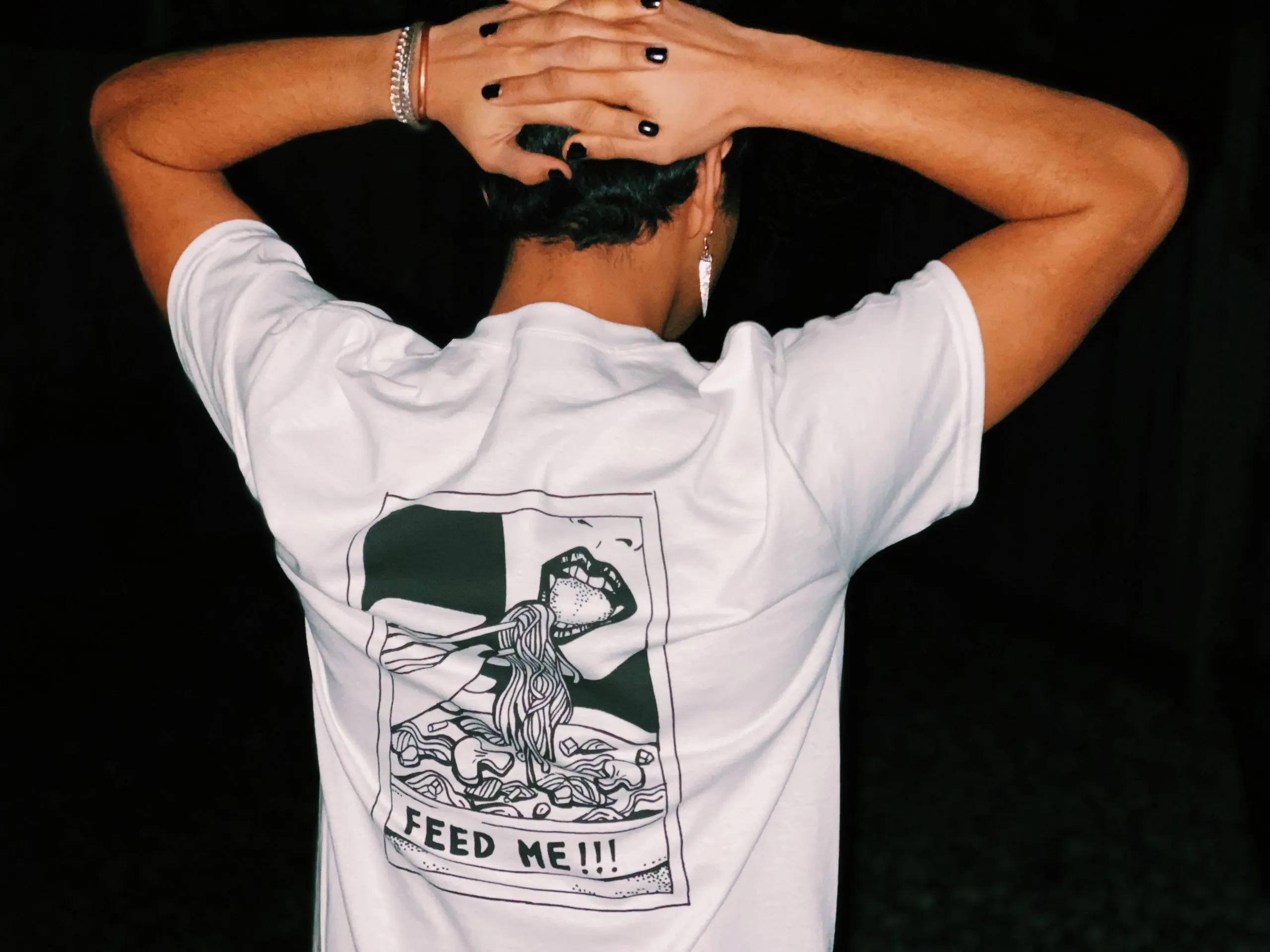I’ve been drawing in my free time since grade school, and I had sold a few stickers in the past in order to raise money for the victims of the fires in my home, Sonoma County. This time, I decided I would design stickers just for the sake of selling them. I opened up a store on Etsy and uploaded a few of my design ideas on Instagram to see if anyone would be interested.
There are certainly moments when I doubt my place in the Stanford community and whether I fit in with my peers in all of their academic pursuits, but there are other moments when I am utterly amazed by the amount of wholehearted support that can be found in the student body. Through the power of social media, I was able to spread the word about the stickers I was selling. The orders started to trickle in, and before I knew it, I had made my first $100 in profit.
A week in, a friend reached out asking if I’d be selling my designs on clothing at any point. I’d painted on old T-shirts in the past, but never had I considered getting my drawings printed on clothes to be sold as actual merchandise.
What started as a “kinda cool” idea turned into KITA Products.
My mom grew up tending to her family’s chickens and rice fields in Bali, Indonesia, and my dad grew up racing BMX bikes down the slopes of Mount Tamalpais in California. I have spent my entire life living in America, only visiting Bali four or five times since birth. As I got older, I began to feel the pull of the other side of my identity.
“Kita” is the Indonesian word for “us.” We are all united through art and language. I decided that this would be the perfect name for the little brand that I wanted to create, and the sentiment of unity that I wanted to inspire in those that chose to wear my designs. The logo includes a Balinese fan, used for traditional dance practices on my mother’s island. For me, it reflects my heritage as the daughter of a Balinese mother and an American father.
A few months ago, my grandfather in Bali passed away unexpectedly. During the handful of times that I was able to interact with him in person, we could hardly communicate through my broken Indonesian and his broken English, which seemed to wedge even more distance between us. After his death, I realized that I wasn’t connected to him in the way that I wanted to be, and I found myself wanting to reunite with my Indonesian culture more than ever. The best way I’m able to do this from afar is through my art. Though the initial idea for designing stickers had been something as simple as wanting to make a few extra bucks, over time I recognized that the other part of why I created KITA was in order to explore my cross-cultural interactions. That’s what I hope to continue to do through my art.
Each of my designs represents a distinct emotional experience, and all of them unified through a similarly bold, black-and-white aesthetic. They reflect different facets of the experience of being a woman, whether overwhelmed with isolation, hungry for food or affection, confused over her own state of being, or thriving in the power that she finds in herself. I feel that these kinds of emotions resonate with people across all backgrounds and aren’t necessarily unique to a female population.
Stanford students have been my biggest customers. My close friends make it a point to parade around one of my hoodies or shirts wherever they go. Once or twice I’ve walked across campus and spotted a KITA sticker on someone’s laptop, or my drawing on the back of a T-shirt as someone walks away.
March will mark three months since I started my little business. Four student organizations have commissioned KITA for gear logos. I’ve also had numerous people request designs for tattoos and band T-shirts. Now, with the help of my friends, I am working on building my own website.
I owe much of this to the part of Stanford that lifts each other up, the part that takes pride in supporting local artists and sharing one another’s passions with the world. For this community, I am grateful.
Contact Clara Spars at cspars ‘at’ stanford.edu.
